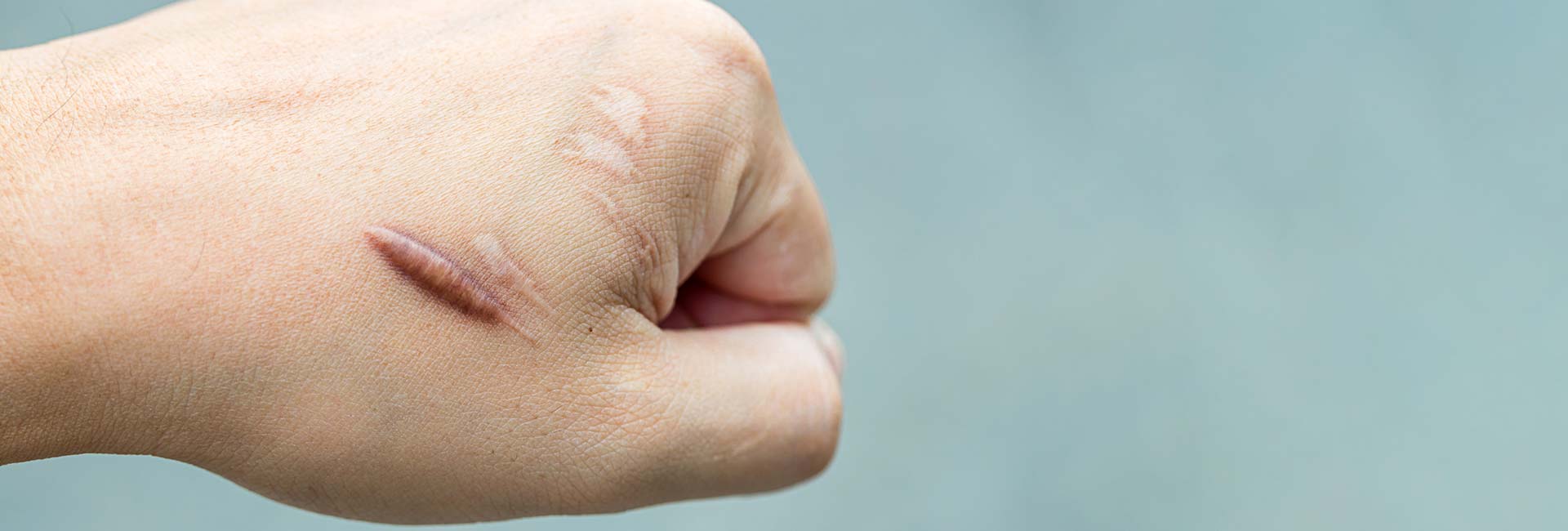Everyone gets scars in their lifetime. They are a normal part of life whether they come from an injury, surgery, or skin conditions. Scars are typically harmless and often ignored. When the scar grows and becomes raised, it forms a keloid. Not everyone who gets scars will get a keloid. But anytime that you have a scar, it could lead to a keloid. These are raised scars that grow much larger than the affected area. These growths come in a variety of shapes and sizes. They can cause people to feel self-conscious and even be painful.
What Causes Scars and Keloids?
There is not a lot of information as to what exactly causes keloids. Although, there are some patterns and common factors among the people that get them the most. Those who get keloids are most commonly between the ages of ten and thirty. Not many people outside this age range develop them. Also, certain ethnicities are more prone to getting keloids. Those of African, Asian, or Hispanic descent are most likely to develop keloids. It has also been observed that those with a family history of keloids are more prone to getting them. They often occur after injury, surgery, and tattooing or piercing of the body. It is important to note that keloids are not cancerous and are not a sign of cancerous activity.
Symptoms of Scars and Keloids
- Appears slowly
- Grows slowly
- Feels soft and doughy or hard and rubbery
- Can be painful
- Itch
- Feels tender
- Gets darker in color over time
- Raised pink, red, or purple scar
Treatments for Scars and Keloids
Depending on your desired results for keloid treatment, the method will vary. Some patients are not bothered by the appearance of the keloid but simply wish for relief from pain or itchiness. Others wish for complete removal of the keloid for cosmetic reasons. Whatever your reason, Dr. Krathen can find the right remedial option for you. The treatment options are:
- Surgical removal
- Corticosteroid injections
- Radiation treatment
- Laser treatments
- Silicone therapy
- Compression garments
Many patients may need a combination of the above treatments for effective removal. Many patients who have keloids are prone to regrowth, so Dr. Krathen can recommend some preventative measures as well.
Schedule a Consultation
To find the right treatment option for your keloid, talk to Dr. Krathen about your goals, concerns, and lifestyle. He and his team at Essential Dermatology serve patients from in and around Natick, MA. To get started, call our office at (508) 827-2615 or request a consultation by filling out our online form. To book an appointment, schedule your visit as a new patient using our online scheduler or as an existing patient using the Mass General Brigham Patient Gateway.
Meet Dr. Michael Krathen
Dr. Michael Krathen is a board-certified dermatologist with more than a decade of medical training and experience. A specialist in both medical and cosmetic dermatology, he uses expertise, collaboration, and compassion to help people of all ages discover their healthiest and most radiant skin.
Credentials You Can Trust







